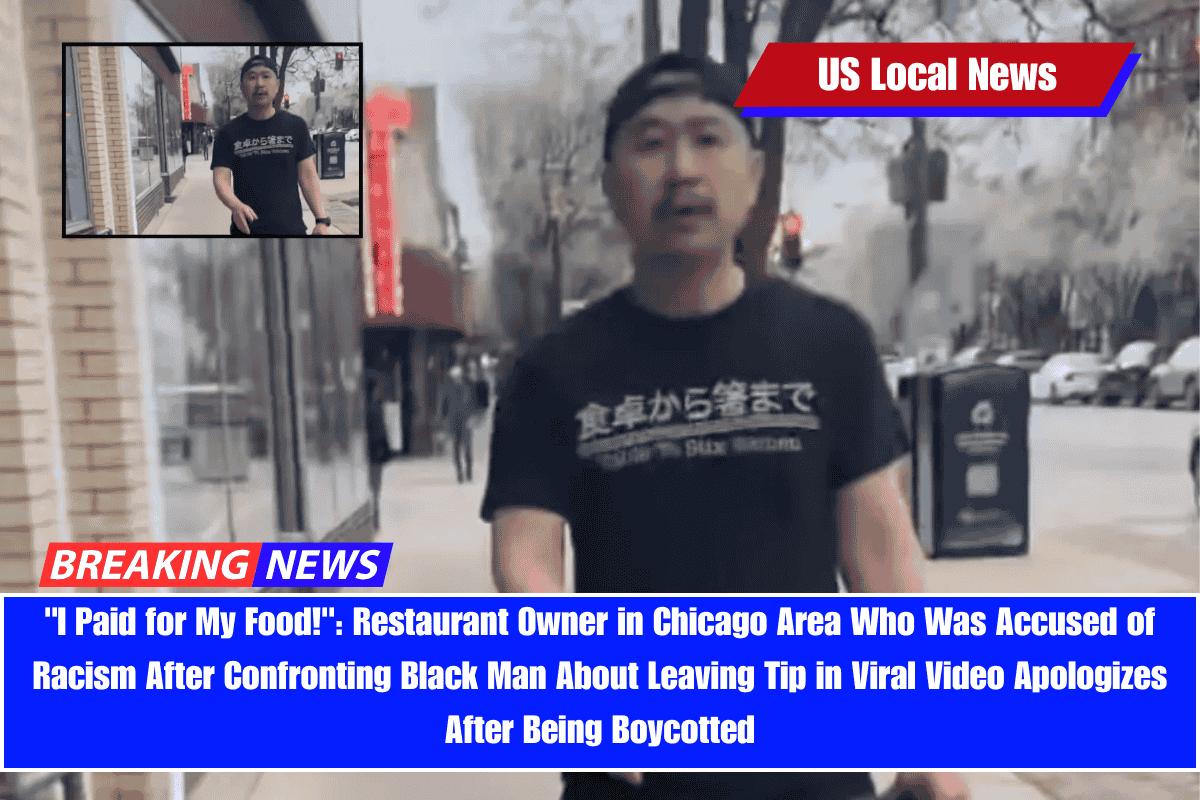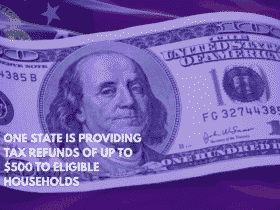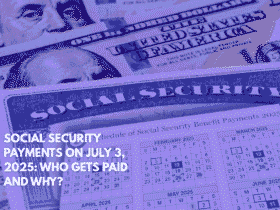A dispute between the owner of Table to Stix, a ramen restaurant in Evanston, Illinois, and a customer over a missed tip escalated into a heated confrontation, igniting protests and sparking difficult discussions about race relations in the city.
The incident, which occurred on April 19, 2025, has raised questions about tipping culture, customer service, and racial bias.
The Incident: Confrontation Over a Tip
The incident began when a customer, a Black man, paid a $19.89 bill with a $20 bill, leaving 11 cents extra but no tip.
Kenny Chou, the restaurant’s owner, allegedly followed the customer onto Davis Street, where tensions quickly boiled over. In a now-viral video, Chou can be seen chasing the customer and engaging in a heated verbal exchange. Chou is heard demanding the tip, and the customer responds by accusing him of harassment, stating that tipping is optional.
In the video, the customer repeatedly tells Chou:
“I paid for my food. I handed you $20. You cannot charge more than what them and you paid so what are you talking about?”
Despite the customer’s response, Chou continued to demand the tip, causing the situation to escalate further. The incident quickly gained attention, sparking debates on social media about the cultural expectations around tipping, especially in the restaurant industry.
Public Reaction and Accusations of Racial Bias
After the video went viral, many people on social media expressed sympathy for the customer, while others felt Chou’s frustration was justified.
However, the racial dynamics of the confrontation became a major point of discussion. Chou, who is of Korean descent, faced backlash from Black community leaders in Evanston, who saw his actions as a reflection of deeper issues of racial bias and harassment.
Messages scrawled in chalk outside Table to Stix labeled the restaurant as “Anti-Black”, and local leaders quickly organized a boycott and called for a public apology from Chou.
Meleika Gardner, a legislative advocate, said the situation called for “real consequences and real healing” and demanded that Chou meet directly with the customer and offer a personal apology.
“The community is asking for an act of courage: that Kenny Chou reach out to the young man and ask what repair looks like to him,” Gardner said.
Chou’s Apology and Ongoing Backlash
Chou later admitted that he lost his temper and felt ashamed of his actions. In an emotional statement, he said the incident was a “lesson in awareness” and expressed regret for the harm he caused to his family and the community.
Despite his apology, the backlash continued. Chou faced further scrutiny from the community and also struggled with the impact on his business. Messages of support for the customer and criticism of Chou flooded the restaurant’s Yelp and social media pages.
In an attempt to make amends, Chou reached out to the customer’s brother, offering a handwritten note and a complimentary meal, but the customer’s family continued to criticize his actions.
The Broader Issue: Tipping Culture and Racial Tensions
This incident has sparked a larger conversation about tipping culture and its relationship to racial dynamics in the restaurant industry. Many have pointed out that restaurant workers often rely on tips to make a living wage, which can create tension in situations like this.
Christine S. Escobar, a member of the Equity and Empowerment Commission, pointed out that Black residents in Evanston have long complained about harassment at local businesses, suggesting that Chou’s behavior was part of a larger pattern of discriminatory treatment.
The situation also brought up the issue of the subminimum wage for tipped workers. Councilmember Devon Reid suggested that eliminating the subminimum wage would help ease the pressure on both workers and customers, removing the need for reliance on tipping.
“It’s unfair to servers that they have to rely on the generosity of patrons,” Reid said at a City Hall meeting.
Ongoing Effects on Table to Stix
The boycott has already begun to affect Table to Stix. The restaurant has disconnected its phone lines, shut down its social media accounts, and been subjected to threatening messages.
Even Yelp temporarily froze the restaurant’s review page due to an influx of politically charged posts, which has raised further concerns about the platform silencing voices in the debate.
Despite these challenges, Chou expressed that he is committed to learning from the experience, but admitted he feels uncertain about how to move forward.
“That’s the scariest thing,” Chou said.











Leave a Reply